Fieldwork
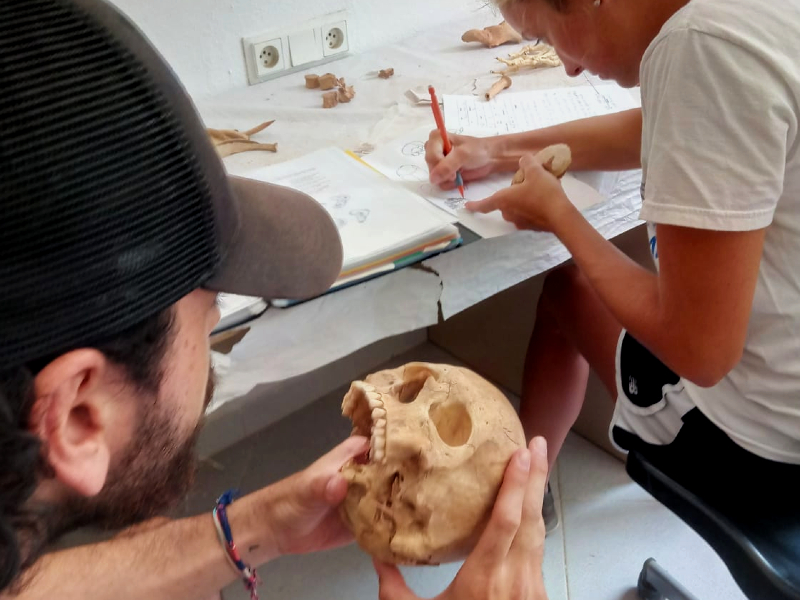
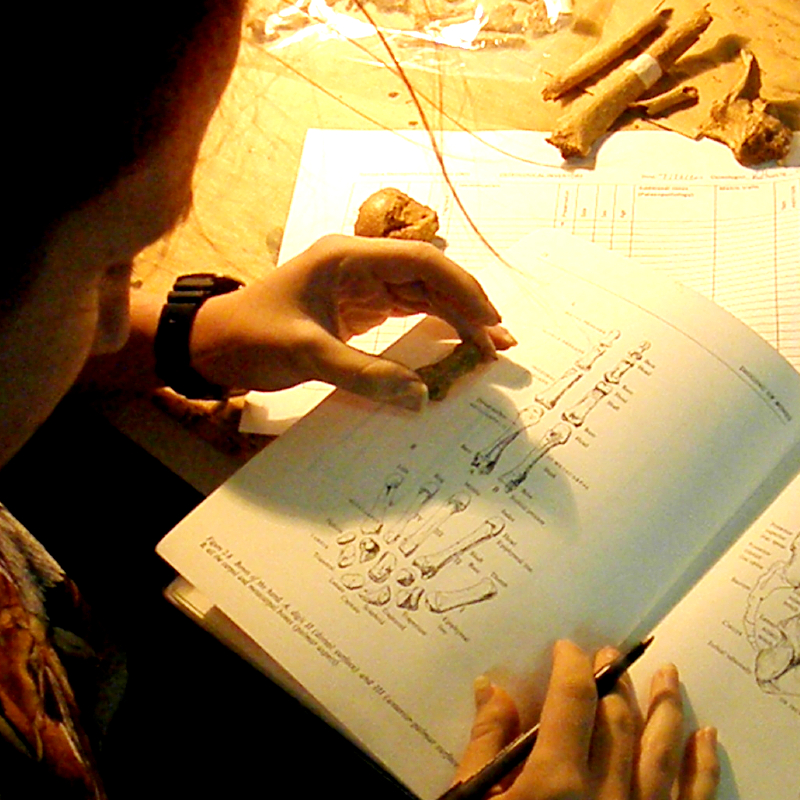
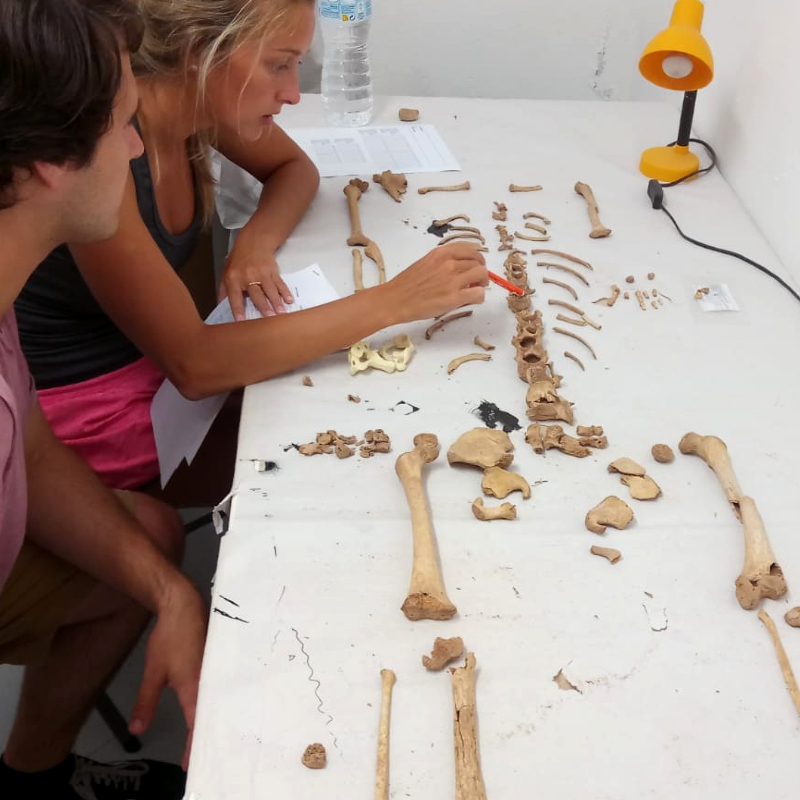
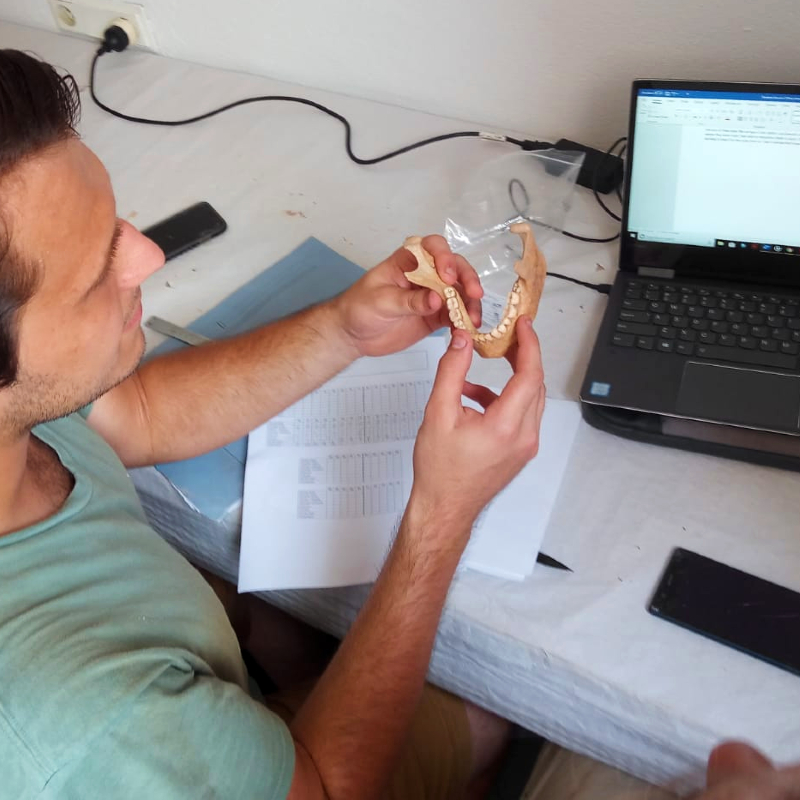
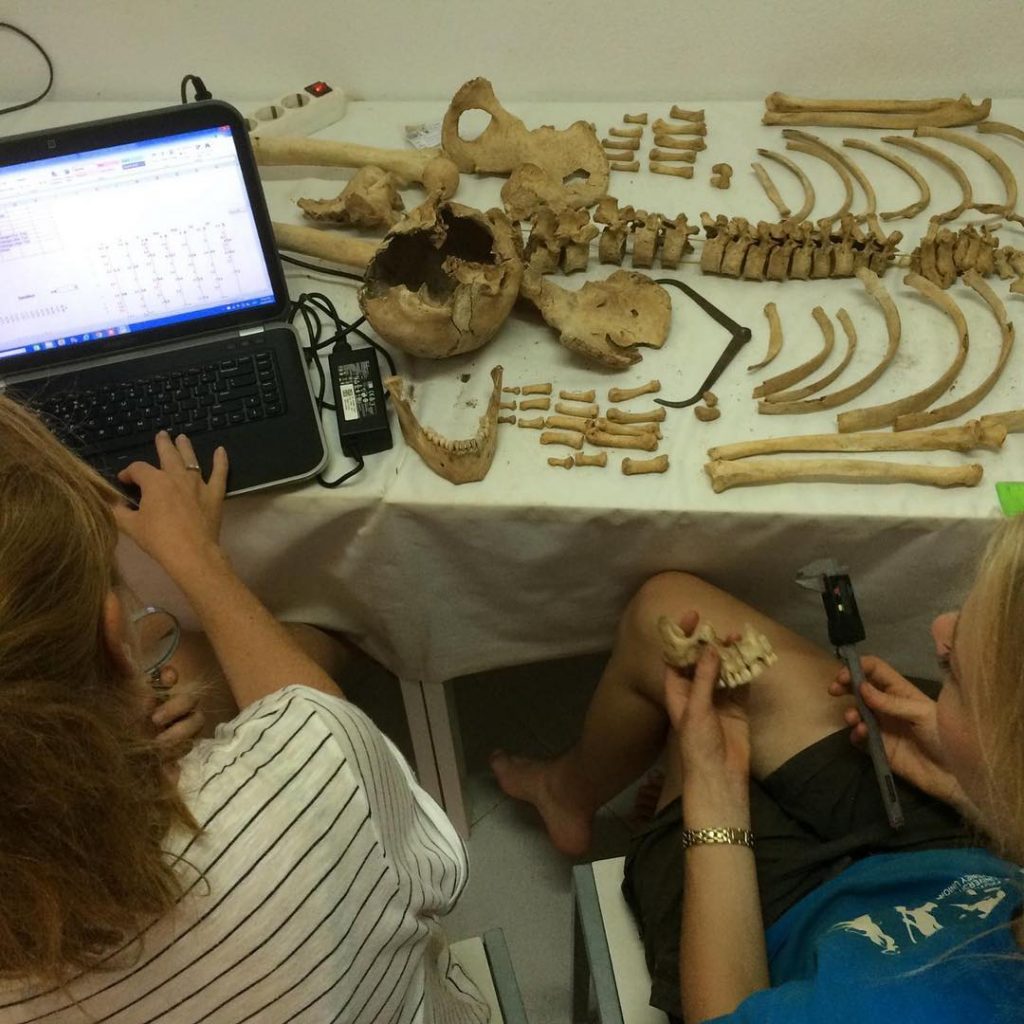
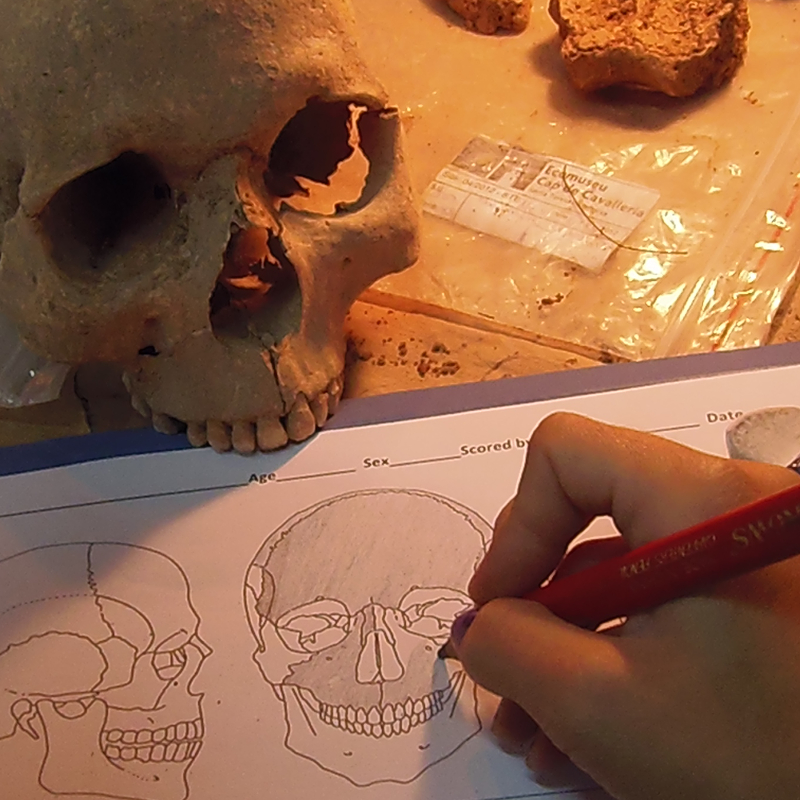
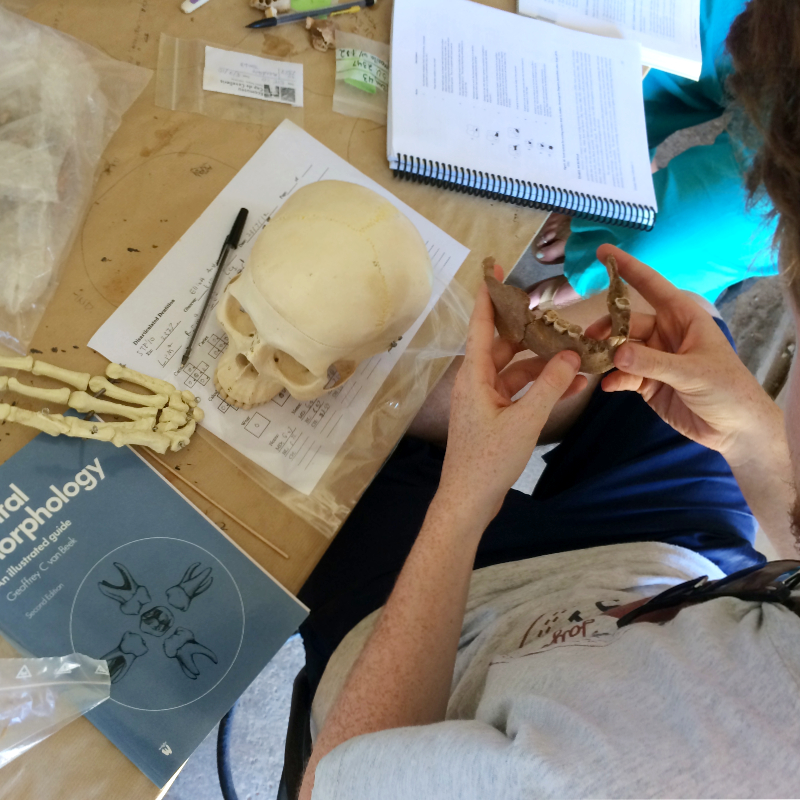
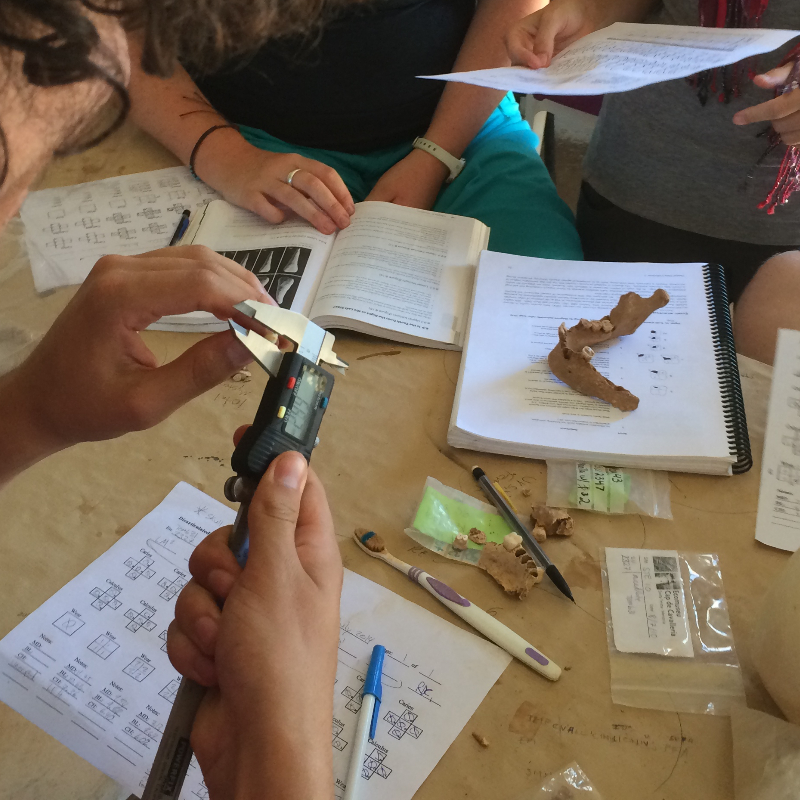
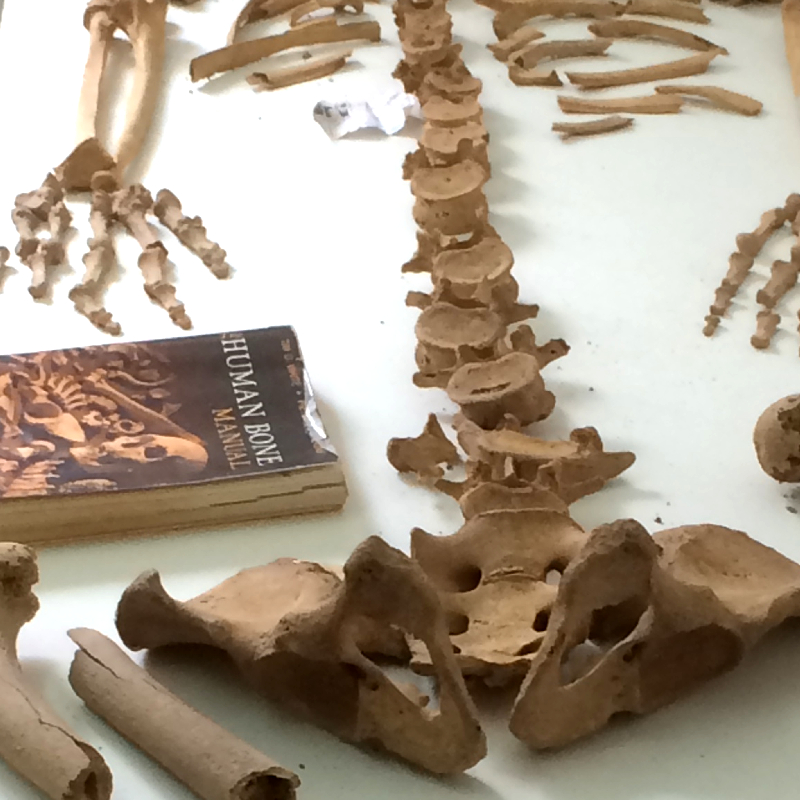
Location: Vial Camino, 1564, 07400 Alcúdia, Illes Balears, Spain
Season: May 1, 2024 to October 27, 2024
Session Dates: Session #2|2024 May 01 – May 16 $ 1950; Session #11|2024 October 12 – October 27 $ 1950 *If you sign up for two sessions in a row (32 days) that take place in Menorca (Balearic Island, Spain), the days between sessions (3 or 4 days) you will have the accommodation for free.
Application Deadline: December 12, 2024
Deadline Type: Contact for Details
Program Type:
Field School, Volunteer
RPA Certified:
No
Affiliation:
Sanisera Archaeology Institute for International Field Schools
Project Director:
Alicia Alonso García (Madrid. Spain - 1994)
She graduated in Biology and completed a master's degree in Physical Anthropology from the Universidad Autónoma de Madrid. She focuses her research on the study of past populations from direct and indirect human remains, frequently using image techniques.
She belongs to a research group Laboratorio de Poblaciones del Pasado (LAPP) at the Universidad Autónoma de Madrid, specialized in the study of archaeobiological remains and through which she has acquired experience in human osteology. It is also part of the al Madam-al Khudairah Project. Life in the Oasis, death in the Hills, which includes her doctoral thesis focused on the analysis of human footprints through 3D models and new technologies.
Project Description:
The Sanisera Archaeology Institute for International Field Schools offers an annual archaeology dig on the island of Menorca, off the coast of Spain. Since then it has organized courses for students who come from all over the world to study abroad and who are interested in anthropology and osteology.
The fieldwork focuses on the in-depth analysis of human skeletal remains excavated from the Roman necropolis at Sanisera. The aim is to use advanced osteological techniques to understand the lifestyle of the people who lived at this site.
This course provides a unique opportunity to contribute to research on the individuals buried at the Roman necropolis at Sanisera. So far, more than 250 individuals from more than 50 tombs have been excavated, presenting a large amount of material from which we can understand the lifestyles of people in late antiquity. Participants will learn the techniques of analyzing and recording information from human skeletal remains in an archaeological context. In this lab based course, both lecture and experiential learning will be used to enable students to gain confidence in the identification and analysis of various skeletal conditions.
We will cover skills in basic demographics such as the techniques to determine age and sex of a skeleton, but will also progress to more advanced methodologies in osteological analysis. Students will learn skills such as: correctly measuring and recording skeletal elements according to set international standards , distinguishing between pathological and non pathological bone and assessing patterns in pathological lesions, identifying marks on the skeleton that indicate how muscles were used during the person’s life (including determining left or right handedness), and assessing nutritional status from bones and teeth. Additionally, participants will learn how to bring these different sources of information together to re-create the biological life history of the individuals buried at this site.
Directed at
As the name implies, this course is designed for participants that have previously studied biological anthropology. This Sanisera Field School course does not include excavation, but centers exclusively on the study and teaching of osteology using the remains excavated from the Roman necropolis.
Participants will learn to draw conclusions and reconstruct aspects of the population’s demographics such as pathologies, illnesses, etc. Because this course is specifically centered on biological anthropological concepts, this course is limited to four participants in order to best assimilate and apply anthropological concepts.
What you will learn
1. In the Fieldwork
2. In the Laboratory
3. Theory
Field School life & language
The fieldwork runs 7 hours a day with time dedicated to the study of human osteology by the analysis of the skeletal remains.
For every seven course days there are two days off.
The course is taught in English.
Sessions & Cost
From 1950 $ session. ***If you sign up for two sessions in a row (32 days) that take place in Menorca, the days between sessions (3 or 4 days) you will have the accommodation for free.
| Sessions | Dates | Cost |
| Session #2 | 2024 | May 01 – May 16 | $ 1950 |
| Session #11 | 2024 | October 12 – October 27 | $ 1950 |
Elementary information:
https://linktr.ee/sanisera
Period(s) of Occupation: The excavation at the necropolis of Sanisera provides all the archaeological documentation necessary for the student to acquire enough training and experience in all aspects surrounding an excavation of the Roman civilization from the II century B.C. to the VI A.D.
Notes:
Certificates - At the end of the Field Program, students will receive a certificate of participation stating the hours and activities of the course. Participants that perform exceedingly well in the course may receive a letter of recommendation from our organization upon request.
Project Size: 1-24 participants
Minimum Length of Stay for Volunteers: 16 days
Minimum Age: 18 and young students between 16 and 18 years old can apply with special permission from their parents.
Experience Required: Previous knowledge or experience in archaeology.
Room and Board Arrangements:
Course fee
• Course tuition.
• Daily transportation to/from the archaeological fieldwork.
• Accident insurance at the site.
• Certificate of participation.
• Visits to museums and archaeological heritage of the island. It is also possible to visit places of charm and beaches.
• Accommodation in the Student Residency in Ciutadella.
• In case of needing to process Schengen Visa the mandatory letter of invitation will be written so you can travel
Airfare not included from the student home to/from Menorca (Spain).
Meals are not included, although we will recommend some cafés and restaurants that do not exceed the average of 23 € /day in meals.
* If you sign up for two sessions in a row (32 days) that take place in Menorca, the days between sessions (3 or 4 days) you will have the accommodation for free.
Academic Credit:
http://archaeology.institute/sanisera-archaeology-institute-petition-for-credits.asp
Fernando Contreras Rodrigo
Apdo. 68
Es Mercadal
Menorca, Balearic Island
07740
Spain
Phone: +34 608894650
The AIA is North America's largest and oldest nonprofit organization dedicated to archaeology. The Institute advances awareness, education, fieldwork, preservation, publication, and research of archaeological sites and cultural heritage throughout the world. Your contribution makes a difference.